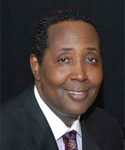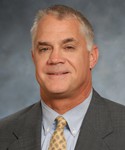
By Jack O’Toole | Angry state lawmakers are moving forward with major financial reform efforts after embarrassment from two whopping accounting scandals involving more than $5 billion in miscounted, misallocated and just plain mysterious state funds.
While many South Carolina taxpayers may be questioning the competence of their chief elected financial officials, state lawmakers want a constitutional change that voters are likely to see on their ballot this November.

Lawmakers say the goal in each chamber is to professionalize more of the state’s principal accounting positions by removing as much politics as possible from the process.
“Politics really shouldn’t come into play,” Berkeley County Republican Sen. Larry Grooms told reporters April 2. “People prefer their accountants not be crusaders.”
An explainer: How we got here
The now-intertwined scandals began in February of last year when then-Comptroller General Richard Eckstrom told a Senate panel that the state had $3.5 billion dollars less than its official balance sheet showed. An ensuing Senate investigation determined the comptroller’s office had been double-counting money going to state colleges and universities for a decade. And while the error did not affect the annual budget – no money was actually missing – it did mislead bond rating agencies about the state’s cash reserves. Hence, the state had a bunch of egg on its face.
Eckstrom, then in his sixth term, resigned about a month later, before the General Assembly might have formally removed him from office.

The second scandal shoe dropped last month after newly-appointed Comptroller Brian Gaines informed senators that he’d discovered a state account with $1.8 billion in unidentified and unallocated funds. Put simply, Gaines explained, state officials couldn’t say with certainty where the money came from or who it belongs to. And this time, the finger of blame appeared to point not at the comptroller’s office, but at four-term State Treasurer Curtis Loftis.
This snafu led to fireworks at a marathon April 2 Senate Finance subcommittee hearing during which senators grilled Loftis for more than six hours over his handling of the account.
“Mr. Loftis has abrogated his responsibility as a state treasurer,” Grooms, who is leading the Senate investigation, said at the hearing. “He has breached the public trust.”
For his part, Loftis claimed his role as treasurer was to act as the state’s banker, not its accountant. And as such, he said, he did his job by ensuring the money was kept safely in the account and properly accruing interest. But he did not and could not know anything about the origins or proper destinations of the money itself.
“I’m being blindsided by complex questions, and they’re being asked in the most leading of manners,” Loftis said. “There’s absolutely no way that the people who elected me can expect a fair hearing under these circumstances.”
But committee members weren’t having it.
“Apparently, Mr. Loftis has lost control of the state treasury,” Grooms declared at the close of the day’s proceedings.
Reforming the system
There are currently two major reform initiatives, one in each chamber. The first, H. 5016, which passed the House 111-0 on March 28 and is now in front of the Senate Finance Committee, would make the state’s unelected auditor – essentially the state’s financial watchdog – an independent position appointed by the governor and approved by the Senate.
Currently, the auditor reports to a state panel that includes the treasurer and the comptroller general – two of the people whose work the auditor is supposed to be watching.

“I think that’s a really good bill,” Sen. Darrell Jackson, D-Richland, and a longtime member of the Finance Committee told Statehouse Report. “The more we keep politics and politicians out of things like that, the better off our state will be.”
The second initiative is a Senate resolution to ask voters whether to remove the comptroller general from the state constitution as an elected office and allow the governor to appoint the position with the approval of the Senate. The resolution passed the Senate unanimously on March 26. If it receives a two-thirds vote in the House, voters will see the matter on their ballots this fall.
Charleston GOP Sen. Chip Campsen, who introduced the Senate resolution,said he believes it’s no accident that both reform initiatives involve strengthening the governor’s office.
“Not talking about Governor McMaster, but just structurally, constitutionally, we have a very weak chief executive,” he told Statehouse Report in an April 3 interview. “And I think it’s important that we have an executive vested with sufficient power to keep the other two branches in check.”

The problem, Campsen went on to explain, is fundamental to the state’s 1895 constitution, which established legislative supremacy over the governor and the courts, in violation of the checks-and-balances system preferred by the nation’s founders. It imposed this supremacy in part by saddling the governor with independently elected cabinet officials like the comptroller general, and with executive branch employees like the auditor who report to independent boards.
“The framers’ vision, and it’s brilliant, was to diffuse power equally between the three branches of government, so you balance ambition against ambition,” he said. “It’s about the discipline of having your power checked by the power of others.”
Asked whether that logic could lead the legislature to go further than the auditor and the comptroller general, Campsen’s answer suggested that voters should stay tuned.
“Well, there’s good reason to look at these offices just for restructuring purposes,” he said. “And there’s also reason to do it for cause, which is clearly the case with the comptroller. That’s still questionable, I guess, in the case of the treasurer. But that process is ongoing before our eyes.”
- Jack O’Toole reports on statewide issues for Statehouse Report and the Charleston City Paper. Have a comment? Send to: feedback@statehousereport.com.















 We Can Do Better, South Carolina!
We Can Do Better, South Carolina!
Go Jack O’Toole!